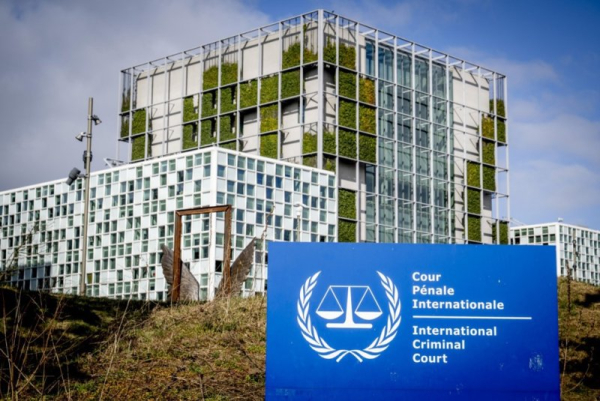

The International Criminal Court in The Hague was conducting comprehensive checks of its systems and taking steps to mitigate the impact of a “sophisticated and targeted” cyberattack it said it had been hit by during last week’s NATO Summit being held at the nearby World Forum. File photo by Robin Utrecht/EPA-EFE
The International Criminal Court in The Hague said it was hit by a “sophisticated and targeted” cyberattack during last week’s NATO summit, the second such incident in less than two years.
The court, which prosecutes genocide, war crimes, crimes against humanity and the crime of aggression, said in a statement Monday that its alert and response mechanisms quickly detected, confirmed and contained the attack.
“A court-wide impact analysis is being carried out, and steps are already being taken to mitigate any effects of the incident,” it said — but gave no indication of the extent of any damage or sensitive case information that may have been compromised, stolen or lost.
The incident came amid a barrage of so-called distributed denial of service attacks targeting local governments and other Dutch institutions before and during the June 23-24 NATO summit, for which a known pro-Kremlin hacker group claimed responsibility.
Cybersecurity authorities said they were also investigating the possible targeting of the train network after services connecting Amsterdam Airport Schiphol to Amsterdam and Utrecht were disrupted on Tuesday due to fire damage to cables.
Dutch Justice Minister David van Weel said he believed the incident “could be sabotage.”
The previous ICC incident occurred in September 2023, with the court saying at the time that it had all the hallmarks of espionage, calling it a “serious attempt to undermine the court’s mandate.”
Following that attack, it instituted a raft of measures in response, reinforcing its risk management framework and identifying actions and procedures in readiness for any potential repercussions including any potential security risk to victims and witnesses, court officials and court operations.
Since the court has been at the center of heated international debate with its rulings, jurisdiction and legitimacy challenged by states that do not recognize it over bias in decisions such as issuing arrest warrants for Israeli Prime Minister Benjamin Netanyahu and former Defense Minister Yoav Gallant on suspicion of war crimes and crimes against humanity.
That prompted the United States to impose sanctions on the court and U.S. President Donald Trump to issue an executive order sanctioning ICC chief prosecutor Karim Khan.
In June, investigations into U.S. personnel who served in Afghanistan and the Israeli warrants, saw the State Department sanction an additional four judges, citing the ICC’s efforts to “arrest, detain or prosecute a protected person without consent of that person’s country of nationality.”
Khan, who has had his own issues, stepped aside in May while an investigation into sexual misconduct allegations against him is completed. He insists he has been the victim of a targeted campaign to discredit him.
Khan lost access to his Microsoft email at the same time he took his leave of absence in May with the incident providing fresh incentive for a European effort to move to alternate platforms for critical communications that are not provided by the U.S.-tech giants.
Back in 2023, the court warned of potential disinformation campaigns targeting the ICC and its officials in an effort to “tarnish the ICC image and delegitimize its activities,” pointing to criminal proceedings launched against elected officials, including Judges and the prosecutor, and daily hacking attempts.
It also claimed to have foiled at the last minute an operation to infiltrate a “hostile intelligence officer” into the court posing as an intern.
In May 2024, the Guardian published the findings of a year-long special investigation alleging Israel’s intelligence agencies had waged a nine-year dirty war against the ICC involving espionage, hacking and threats in an effort to derail the court’s work.